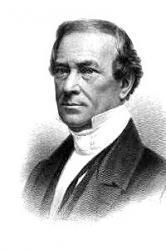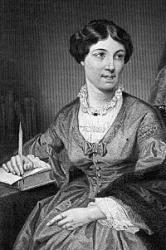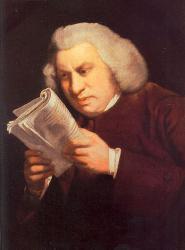Planning worship?
Check out our sister site, ZeteoSearch.org,
for 20+ additional resources related to your search.
- |
User Links
Person Results
‹ Return to hymnal




Export as CSV
Jane Elizabeth Roscoe Hornblower
1797 - 1853 Person Name: Jane Roscoe Hymnal Number: 243 Author of "Self-Consecration" in A Book of Hymns for Public and Private Devotion (15th ed.) Roscoe, Jane, a second daughter of William Roscoe, was born in 1797, married to Francis Hornblower in 1838, and died in 1853. Her Poems by one of the Authors of Poems for Youth by a Family Circle were published in 1820, and her Poems in 1843, Her hymns in common use are:—
1. How rich the blessings, O my God. Gratitude. In the Liverpool Kenshaw Street Collection 1818.
2. My Father, when around me spread. Peace in Affliction. Appeared in the Monthly Repository, Dec, 1828; and the Sacred Offering, 1832.
3. O God, to Thee, Who first hast given. Self-Consecration. In Poems for Youth, 1820.
4. Thy will be done, I will not fear. Resignation.
[Rev. Valentine D. Davis, B.A.]
--John Julian, Dictionary of Hymnology (1907)
Jane Elizabeth Roscoe Hornblower
N. L. Frothingham

1793 - 1870 Person Name: Frothingham Hymnal Number: 23 Author of "For Spiritual Influences" in A Book of Hymns for Public and Private Devotion (15th ed.) Frothingham, Nathaniel Langdon, D.D., born at Boston July 23rd, 1793, and graduated at Harvard 1811, where he was also sometime Tutor. From 1815 to 1850 he was Pastor of the First Church (Unitarian), Boston, and subsequently attended as a worshipper the church where he had been 35 years minister till his sight and strength failed him. He died April 4th, 1870.
His Metrical Pieces, in 2 volumes, were published in 1855 and 1870.
1. O God, Whose presence glows in all. Ordination. This was written in 1828 for the ordination of W. B. Lunt, New York.
2. We meditate the day . Installation. Written in 1835 for Mr. Lunt's installation at Quincy, Mass., as Co-pastor with Peter Whitney.
3. O Lord of life and truth and grace . Ordination. Also a special hymn. It was composed for the ordination of H. W. Bellowes, New York, 1839. It is found in common with Nos. 1 and 2 in Frothingham's Metrical Pieces, 1855. These Metrical Pieces are unknown to the English Collections. [Rev. F. M. Bird, M.A.]
--John Julian, Dictionary of Hymnology (1907)
================
Frothingham, N. L. , p. 400, ii. Other hymns are:—
1. O Saviour, Whose immortal word. Opening of a Place of Worship. Written "For the Dedication of the Church of the Saviour, Boston, November 16, 1847."
2. Remember Me, the Saviour said. Holy Communion.
3. They passed away from sight. Death and Burial.
4. When I am weak, I'm strong. Spiritual Strength. Nos. l, 2, and 4 are from his Metrical Pieces, Translated and Original, 1855,
--John Julian, Dictionary of Hymnology, Appendix, Part II (1907)
N. L. Frothingham
Harriet Martineau

1802 - 1876 Person Name: H. Martineau Hymnal Number: 173 Author of "The Coming of Christ in Power" in A Book of Hymns for Public and Private Devotion (15th ed.) Martineau, Harriet, was born at Norwich, June 12, 1802, and died at Ambleside, June 27, 1876. Best known as the writer of Illustrations of Political Economy, Retrospect of Western Travel; two novels, Deerbrook and The Hour and the Man; Eastern Life, Past and Present; a History of the Thirty Years’ Peace, and various other works. Her first publication was a book of Devotional Exercises, with hymns appended to each Exercise, and her hymns also belong to what she speaks of in the Autobiography as her "Unitarian" period. Five of them appeared in A Collection of Hymns for Christian Worship, printed in 1831 for the congregation of Eustace Street, Dublin, and edited by her brother, the Rev. James Martineau.
1. All men are equal in their birth. Human Equality.
2. Lord Jesus! come; for here. Jesus desired. Sometimes given as(1) "Come, Jesus, come, for here"; (2) and "Thy kingdom come, for here."
3. The floods of grief have spread around. In Affliction.
4. What hope was thine, O Christ! when grace. Peace.
5. When Samuel heard, in still midnight . Samuel.
The Rev. J. R. Beard's Collection 1837, contains 1, 2, 4 and 5, and:—
6. The sun had set, the infant slept. Gethsemane. The Rev. W. J. Fox's Hymns and Anthems, 1841, contains No. 1, and
7. Beneath this starry arch. Progress . [Rev. Valentine D. Davis, B.A.]
-- John Julian, Dictionary of Hymnology (1907)
Harriet Martineau
Jean Frederic Oberlin
1740 - 1826 Person Name: Oberlin Hymnal Number: 242 Author of "Self-Dedication" in A Book of Hymns for Public and Private Devotion (15th ed.)
Jean Frederic Oberlin
John Sterling
1806 - 1844 Person Name: Sterling Hymnal Number: 75 Author of "Love Supreme in God" in A Book of Hymns for Public and Private Devotion (15th ed.) Sterling was born at Kames Castle, Bute, July 20, 1806, and died at Ventnor, Isle of Wight, Sep. 18, 1844.
--John Julian, Dictionary of Hymnology, Appendix, Part II (1907
================
Sterling, J., p. 1595, ii. (Under "When up to nightly skies," &c.) Another of his hymns which was given in the American Hymns of the Spirit, 1864 and Martineau's Hymns of Praise and Prayer, 1873, No. 31, "0 Source divine and Life of all" (Reverence and Love), has passed into a few modern American collections, including The Pilgrim Hymnal, 1904. It is dated 1840.
--John Julian, Dictionary of Hymnology, New Supplement (1907)
John Sterling
Lucius Manlius Sargent
1786 - 1867 Person Name: Sargent Hymnal Number: 577 Author of "Temperance Hymn" in A Book of Hymns for Public and Private Devotion (15th ed.) Sargent, Lucius Manlius. (Boston, Massachusetts, June 25, 1786--June 2, 1867, Boston). A layman of independent mans, author of many articles advocating temperance. His temperance hymn beginning "Slavery and death the cup contains" was written during the Washingtonian Temperance Revival and appeared in Adams' and Chapin's Unitarian Hymns for Christian Devotion (Boston, 1846). In the American Methodist Episcopal Hymnal (1878), the first line is altered to read "Bondage and death the cup contains." The hymn is included, with the original wording, in the Universalist Church Harmonies (1895).
--Henry Wilder Foote, DNAH Archives
Lucius Manlius Sargent
William Gaskell

1805 - 1884 Person Name: Gaskell Hymnal Number: 10 Author of "“It is Good to be Here.”" in A Book of Hymns for Public and Private Devotion (15th ed.) Gaskell, William, M.A., son of Mr. William Gaskell, was born at Latchford (a suburb of Warrington, on the Cheshire side of the Mersey), 24 July, 1805. He was educated at Manchester New College and at the University of Glasgow, where he graduated M.A. in 1825. In 1828 he became co-pastor with the Rev. J. G. Robberds at Cross Street Unitarian Chapel, Manchester, a position he held until his death. Mr. Gaskell was a man of cultivated mind and considerable literary ability. His publications include Lectures on the Lancashire Dialect, 1853, a small volume of Temperance Rhymes, 1839, and various theological works. In 1832 he married Elizabeth Cleghorn Stevenson, who afterwards attained celebrity as the authoress of Mary Barton, and of other popular tales. He died June 11, 1884, and is buried at Knutsford. To the second edition, 1856, of the 1st Series of Lyra Germanica Mr. Gaskell contributed "A sure Stronghold our God is He," a translation of Luther's “ Ein' feste Burg" (q.v.), replacing a version by Miss Winkworth in the first edition. He also contributed 79 hymns to Beard's Unitarian Collection of Hymns for Public and Private Worship, 1837. [George Arthur Crawford, M.A.]
The following hymns by Gaskell still in common use are found chiefly in Unitarian hymnbooks, including Martineau's Hymns, &c, 1840, and Hymns of Praise and Prayer, 1873; Hedge & Huntington's Hymns for the Church of Christ, Boston, U.S.A., 1853; Longfellow & Johnson's Book of Hymns, Boston, 1848, and their Hymns of the Spirit, Boston, 1864; and the American Unitarian Association's Hymn [& Tune] Book, &c, Boston, 1868 :—
1. Dark, dark indeed the grave would be. Death and Burial.
2. Darkness o'er the world was brooding. The Dayspring.
3. Dark were the paths our Master trod. Sympathy with Christ.
4. Father, glory be to Thee. Doxology.
5. Forth went the heralds of the cross. Power of Faith.
6. How long, O Lord, his brother's blood? In time of War. From this "O hush, great God, the sounds of war," is taken.
7. I am free, I am free, I have broken away. The New Birth.
8. In vain we thus recall to mind. Holy Communion.
9. Mighty God, the first, the last. Infinite Knowledge.
10. No more, on earth no more. Death and Heaven.
11. Not in this simple rite alone. Holy Communion.
12. Not on this day, 0 God, alone. Sunday.
13. O God, the darkness roll away. Missions.
14. O God, to Thee our hearts would pay. Old Year.
15. 0 God, who knowest how frail we are. Seeking Strength.
16. 0 not to crush with abject fear. Christ's Work.
17. Our Father, through the coining year. The original begins, "Father, throughout the coming year."
18. Press on, press on, ye sons of light. Continuance in well-doing.
19. Sleep not, soldier of the cross. Faithfulness.
20. Thanks, thanks unto God! Who in mercy hath spoken. Gratitude for the Gospel.
21. Through all this life's eventful road. Walking with God.
22. To Thee, the Lord Almighty. Doxology.
23. Unto Thy temple, God of Love. Divine Worship.
24. We join to [crave] pray with wishes kind. Holy Matrimony.
25. We would leave, 0 God, to Thee. Original: "We would cast, 0 God, on Thee." Rest in God.
26. When arise the thoughts of sin. Looking to Jesus.
These hymns all appeared in Beard's Collection, 1837. In addition there are:—
27. Calmly, calmly lay him down.
28. 0 Father, [gladly] humbly we repose.
29. 0 hush, great God, the sounds of war. For Peace.
The dates of these hymns we have not been able to determine. No. 27 is in Hopps's Hymns for Public Worship, 1858 ; and Nos. 28 and 29 are in Hedge & Huntington's Hymns for the Church of Christ, 1853.
-- John Julian, Dictionary of Hymnology (1907)
William Gaskell
Samuel Johnson

1709 - 1784 Person Name: Dr. Johnson Hymnal Number: 467 Author of "God" in A Book of Hymns for Public and Private Devotion (15th ed.)
Samuel Johnson
John Bickersteth
1781 - 1855 Person Name: Bickersteth Hymnal Number: 58 Author of "Closing Hymn" in A Book of Hymns for Public and Private Devotion (15th ed.) Bickersteth, John, M.A., son of Henry Bickersteth, surgeon, born at Kirkby-Lonsdale, June, 19, 1781, and educated at the Grammar School of that town, and Trinity College, Cambridge, where he graduated in honours. Taking Holy Orders, he became Vicar of Acton, Suffolk, and subsequently Rector of Sapcote, Leicestershire. He died Oct. 2, 1855. The Dean of Lichfield is his second, and the late Bishop of Ripon his fourth son. In 1819 he published Psalms and Hymns, selected and revised for Public, Social, Family, or Secret Devotion, in which his hymns were included. A fourth edition, much enlarged, appeared in 1832. Of his hymns contributed to his Collection in 1819, the following were transferred to his brother's Christian Psalmody, 1833:—
1. Great God, let children to Thy throne. S. Schools.
2. Hast Thou, holy Lord, Redeemer. H. Communion.
3. Israel's Shepherd, guide me, feed me. H. Communion.
and were thus brought into wider notice than through his own work. No. 3 is sometimes given as "Heavenly Shepherd, guide us, feed us," as in the American Unitarian Hymns of the Spirit, Boston, 1864.
-- John Julian, Dictionary of Hymnology (1907)
John Bickersteth
Thomas Dale
1797 - 1870 Person Name: Dale Hymnal Number: 407 Author of "“Weep Not.”" in A Book of Hymns for Public and Private Devotion (15th ed.) Dale, Thomas, M.A., son of Thomas Dale, a bookseller in London, born at Pentonville, Aug. 22, 1797, and educated at Christ's Hospital, and Corpus Christi College, Cambridge, graduating B.A. 1822, M.A. 1825. On taking Holy Orders, he became, after holding several curacies, Vicar of St. Bride's, Fleet Street, London; Canon of St. Paul's, 1843; Vicar of St. Pancras, 1846; and Rector of Therfield, Herts, 1800. In 1870 he was nominated to the Deanery of Rochester, but died before induction, May 14, 1870. His poetical works are:—
(1) The Widow of Nain, 1819; (2) The Outlaw of Tauris, 1820; (3) Irad and Adah, a tale of the Flood; and Specimens of a New Translation of the Psalms, 1822. These Poems were collected and published in one vol. in 1836; 2nd ed. 1842.
From these works the following hymns have been taken:—
1. Dear as thou wert [wast], and justly dear (1819). Burial. In the Leeds Hymn Book, 1S53, and several American collections. It is from the Widow of Nain, and is given as a dirge sung at the funeral by the Village Minstrel.
2. 0 never, never can we know (1822). Good Friday. In the Baptist Psalms & Hymns, 1858-80.
3. Speak, 0 ye judges of the earth (1822). Ps. lviii. In the Mitre Hymn Book, 1836, &c.
4. The Lord Whose Name is love (1836). Children's Praises. In the Mitre Hymn Book, 1836.
5. When the spark of life is waning (1819). A Dying request. This is No. viii. of Poems, appended to The Widow of Nain, 1819, p. 69. In Stevenson's Hymns for Church & Home, 1873.
Other hymns of a similar character might be taken from these works with advantage. [William T. Brooke]
-- John Julian, Dictionary of Hymnology (1907)
Thomas Dale


 My Starred Hymns
My Starred Hymns


